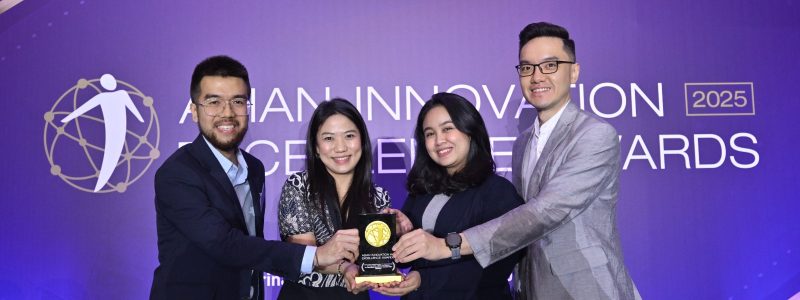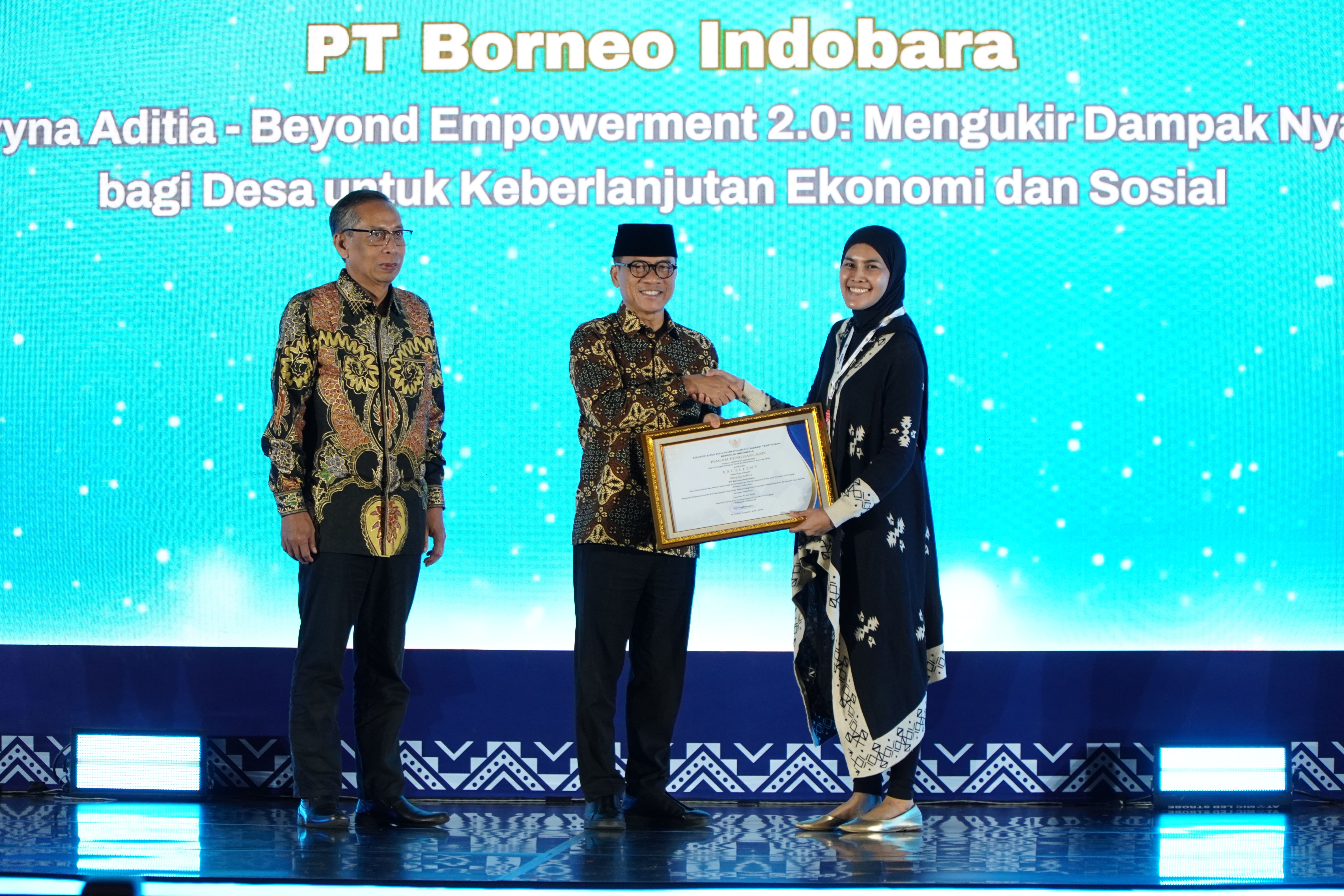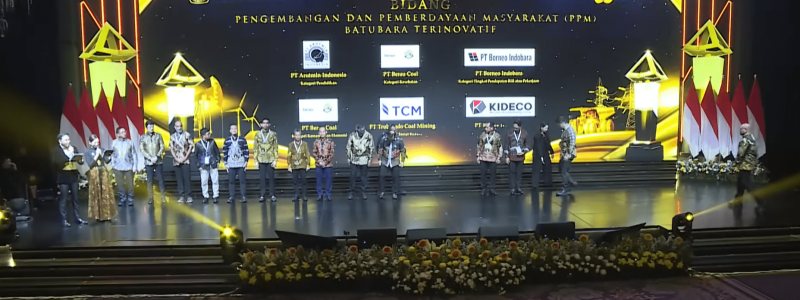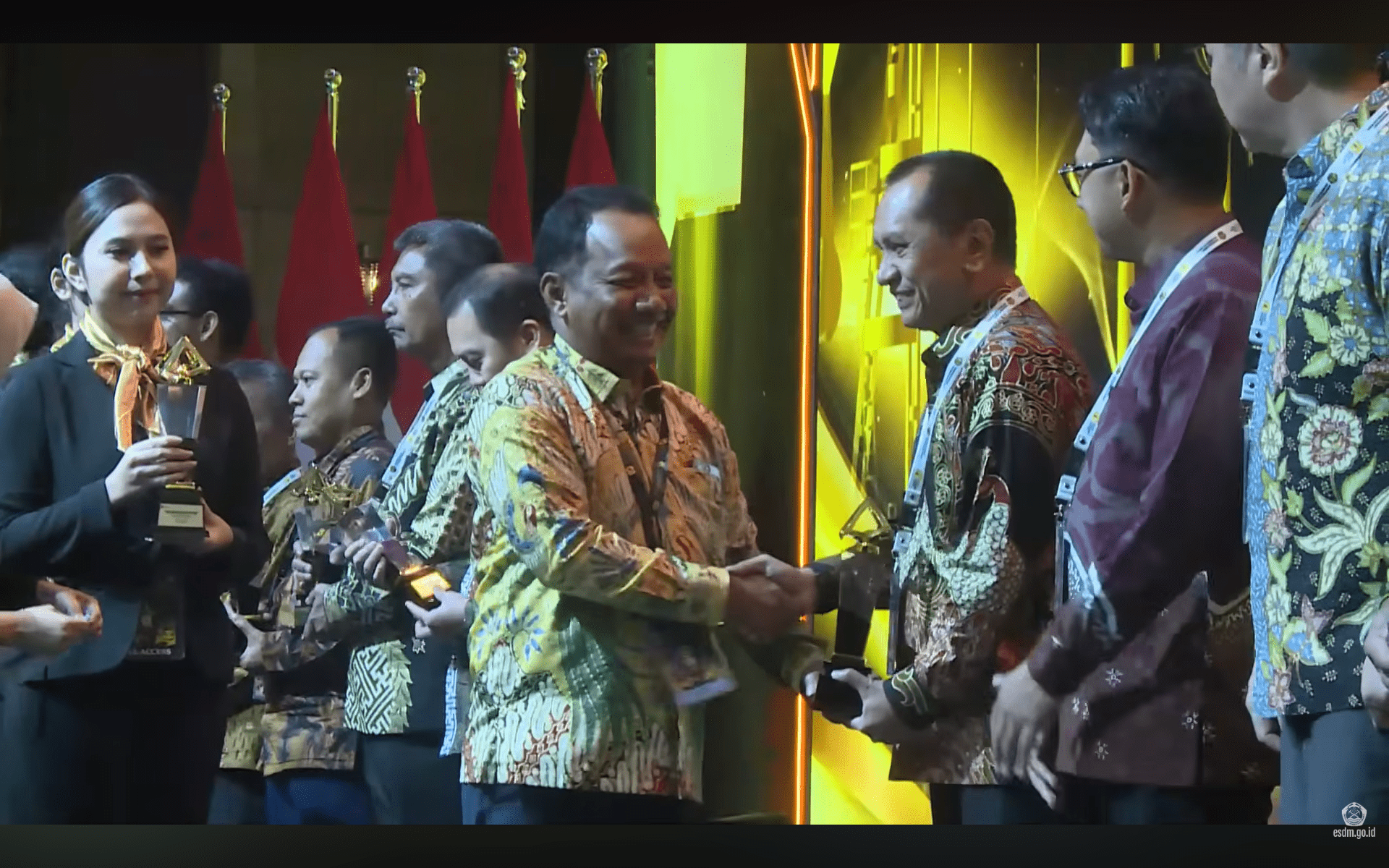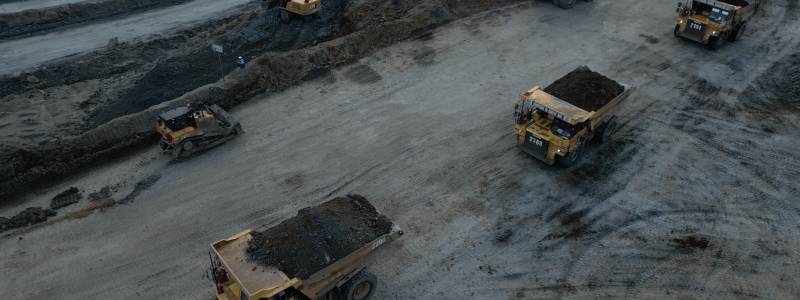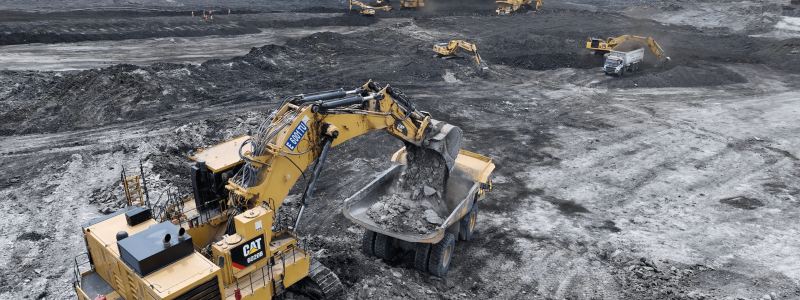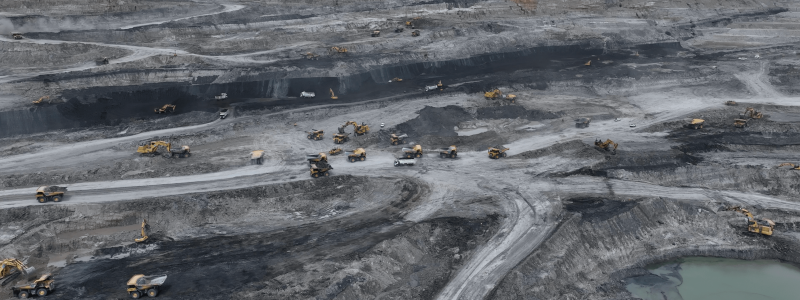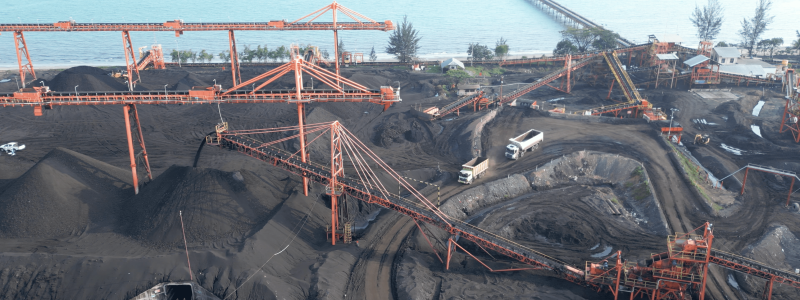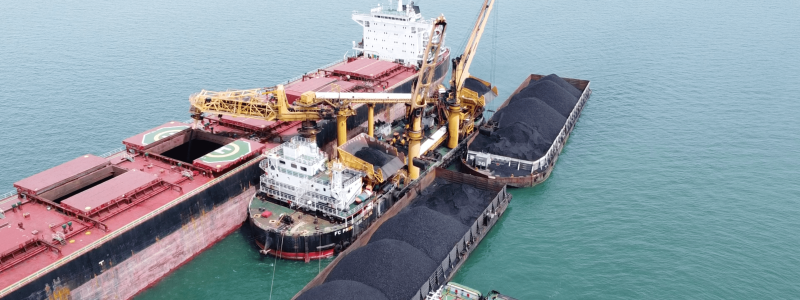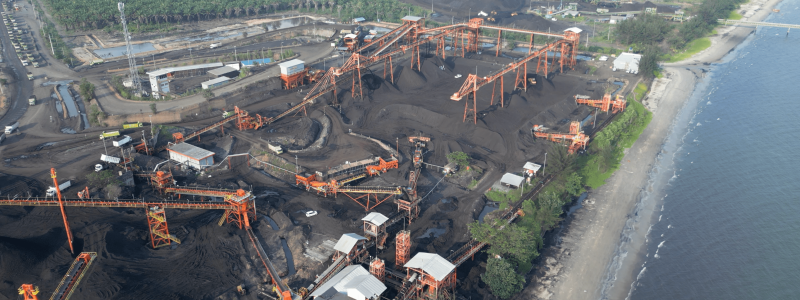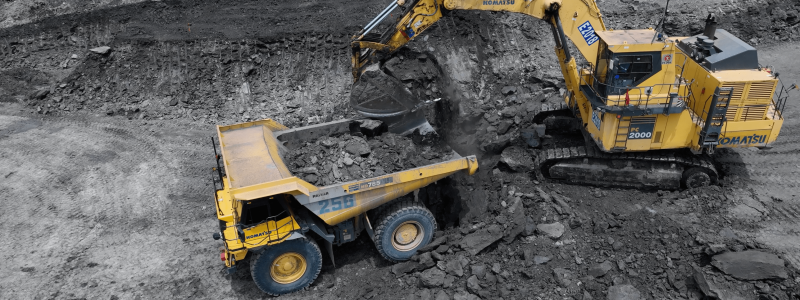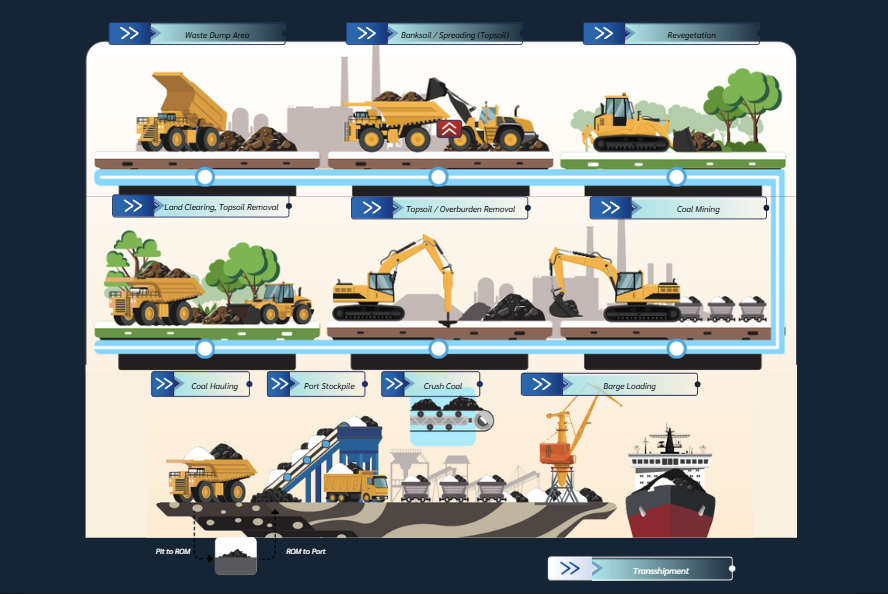Amid the ongoing global energy transition, coal continues to play a crucial role as one of the key contributors to Indonesia’s Gross Domestic Product (GDP) and remains a major component in the country’s energy mix. Beyond keeping the lights on, coal drives exports, supports industries, and funds national development.
In the midst of global pressure toward cleaner energy, PT Golden Energy Mines Tbk (GEMS) stands out with a balanced approach demonstrating that environmental responsibility and efficient coal production can go hand in hand.
The Strategic Role of Coal across Industries
Coal’s role extends far beyond being a fuel source. Today, it serves as a vital input in several major industries. In the steel industry, for instance, approximately 0.7 tons of metallurgical (coking) coal are required to produce 1 ton of crude steel.
In the cement industry, coal is used to produce clinker, consuming around 0.15 tons of coal per ton of cement, and resulting in roughly 1 ton of carbon emissions per ton of cement.
As a chemical raw material, coal can be gasified to produce syngas, which is then processed into methanol, phenol, and other essential chemical compounds used in pharmaceuticals and plastics manufacturing.
GEMS’ production target of 50 million tons in 2025 will contribute to the national coal production plan of 735 million tons, further solidifying GEMS’ position as a strategic partner in driving industrial growth and national energy development.
The Multiplier Effect: GEMS’ in Community Empowerment
From Mining for a Better Life
The coal industry is often viewed solely in terms of its macroeconomic contributions—GDP, export earnings, or employment. However, for GEMS, the existence of mining shall be more than that: they must provide tangible social added value and create a multiplier effect for local communities. This principle is realized through a series of strategic CSR programs that not only address basic needs but also stimulate economic growth, health, education, and environmental sustainability.
A Real Multiplier Effect
GEMS’ CSR programs through its operational unit, PT Borneo Indobara (BIB), are designed not merely as philanthropic activities but as long-term investments to build a productive ecosystem. Some of the achievements that reflect this multiplier effect include:
- Kelompok Nelayan Berjaya (Fishermen Empowerment Program)
Processing approximately 6,246 used tires into 694 fish aggregating devices (FADs).
Impact: fish catches increased tenfold, reducing expenses for fishermen while restoring the marine ecosystem.
Multiplier Effect: increased fishermen’s income, reduced mining waste, and strengthened marine food security. In addition, a new group was formed for the downstream processing of marine products.
- Andaru Mamulih Angsana – Drinking Water from Former Mining Ponds
Utilization of 32 hectares of former mining ponds with a capacity of 8 million m³ as a raw water source.
Impact: The treatment technology produces drinking water with a pH of 8+ at a capacity of 3,600 liters/hour, supplying the needs of 8 villages for both clean water and drinking water.
Multiplier Effect: Community water expenditure has decreased by 93%, new businesses have emerged in the community with the availability of clean water and drinking water, and a concrete example of a circular economy from mining has been presented to the community.
- Integrated Farming System (IFS)
Utilization of 97.16 hectares of idle land in 22 villages in ring 1 for agriculture, fisheries, and livestock. And will continue to be developed further.
Impact: alleviating up to 93% of poor families, strengthening food security, and creating new economic value chains.
Multiplier Effect: land that was previously unproductive is now a source of livelihood for generations, reducing dependence on the mining industry.
- Coal Briquette Products – Utilization of Coal Waste
Impact: Coal waste is utilized to produce high-quality briquettes as an alternative energy source for households and MSMEs.
Multiplier Effect: Reduces dependence on LPG, supports environmentally friendly energy, and creates new local business opportunities.
- Empowering Home Industries & MSMEs
Impact: Support for small businesses such as local food processing, handicrafts, and garment manufacturing (mining uniforms).
Multiplier Effect: Diversifies the village economy, creates jobs for women, and strengthens family independence.
The chain effect of GEMS CSR does not stop at one sector. Drinking water improves health while saving household costs. Agriculture, fisheries, and livestock are also reducing poverty. Fishermen Empowerment, MSMEs grow, education is accessible, health improves, and village institutions are strengthened. Everything moves in one productive social ecosystem.
This is the essence of GEMS’ multiplier effect: transforming the coal industry’s contribution from mere numbers on the national balance sheet into a force that nurtures life at the most micro level—villages, families, and individuals.
Read Also: Coal Mining in Indonesia: Opportunities, Challenges, and the Future
GEMS’ Commitment to the Future
GEMS is not solely focused on achieving production targets; it is shaping an inclusive future for communities, the environment, and the national economy.
Through long-term commitments and cross-sectoral responsibility, GEMS demonstrates that coal will remain relevant when managed sustainably.

